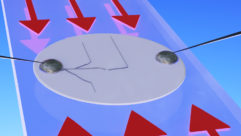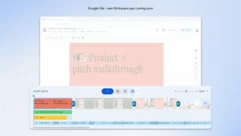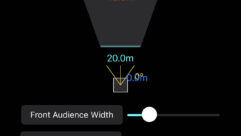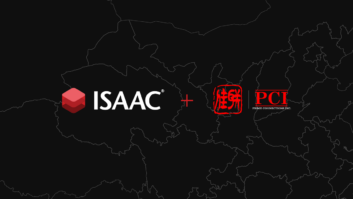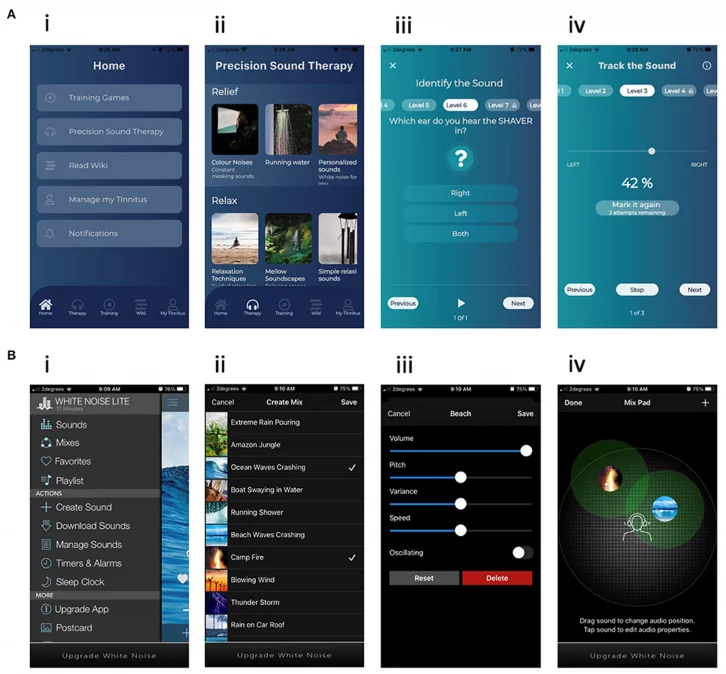
Researchers at the University of Auckland are claiming excellent results with a combination treatment in a smartphone app. While the initial cause of tinnitus can be anything from loud noises to medication, earwax to tumors, inflammation, or circulation issues, the symptom is generated in the brain.
The app takes a multi-discipline approach, combining a range of treatments that have worked for some sufferers. Loz Blain at New Atlas–himself a tinnitus sufferer describes it this way: The “digital polytherapeutic” combined “goal-based counseling with personalized passive and active game-based sound therapy.” It was personalized for each subject after an assessment by an audiologist, who tailored the digital tools in the app to the user’s own experience of tinnitus. The Auckland team tested its app against a popular passive white-noise sound therapy app called White Noise Lite.
In the study, the measurement of effectiveness was the Tinnitus Functional Index, a standard scale used to quantify a person’s experience of tinnitus–a change of 13 points is regarded as a clinically meaningful difference.
Again from New Atlas: Thirty-one chronic sufferers of moderate to severe tinnitus used the app for 12 weeks, and 30 used the white noise app. The group using the polytherapeutic reported an average improvement of 16.36 points after six weeks, and 17.83 points after 12 weeks, with approx 55% of participants experiencing a clinically meaningful improvement after six weeks, and 65% at 12 weeks.
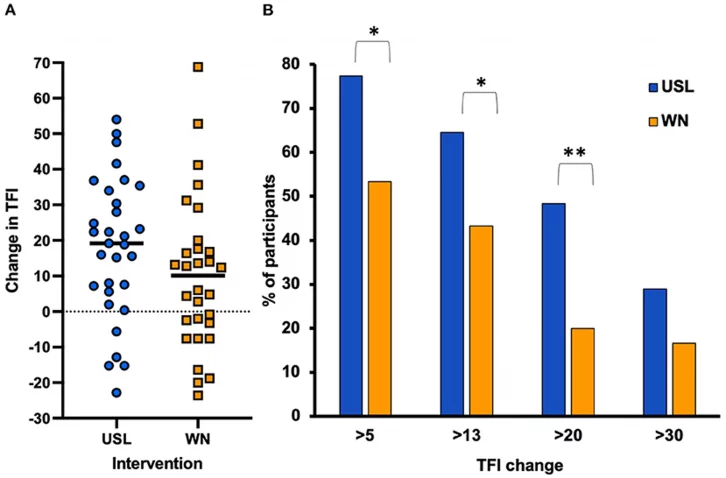 These results were significantly better than the white noise app, although that also made a difference for some users. The average improvement for white noise users was 10.77 points at six weeks, 10.12 at 12 weeks, with 33% of this group experiencing clinically meaningful improvements at six weeks, and 43% at 12 weeks.
These results were significantly better than the white noise app, although that also made a difference for some users. The average improvement for white noise users was 10.77 points at six weeks, 10.12 at 12 weeks, with 33% of this group experiencing clinically meaningful improvements at six weeks, and 43% at 12 weeks.
“This is more significant than some of our earlier work and is likely to have a direct impact on future treatment of tinnitus,” says Associate Professor in Audiology Grant Searchfield, lead author of a paper published in Frontiers in Neurology. “Earlier trials have found white noise, goal-based counseling, goal-oriented games and other technology-based therapies are effective for some people some of the time. This is quicker and more effective, taking 12 weeks rather than 12 months for more individuals to gain some control. What this therapy does is essentially rewire the brain in a way that de-emphasizes the sound of the tinnitus to a background noise that has no meaning or relevance to the listener.”
Blain spoke to Dr. Caitlin Barr, CEO of Soundfair Australia, a hearing equality organization that also runs Tinnitus Australia, a non-profit focused just on tinnitus, for an independent opinion on this study and the polytherapeutic’s potential to make a genuine change for the average tinnitus sufferer. It’s worth reading her description of the distinction between psychological tinnitus, which can respond to the cognitive behavior therapy element of the app (CBT) and physiological tinnitus, which may improve through use of the sound therapy element of the app. MORE@NewAtlas
Read the study open access in the journal Frontiers in Neurology. The app is pending regulatory approval.


